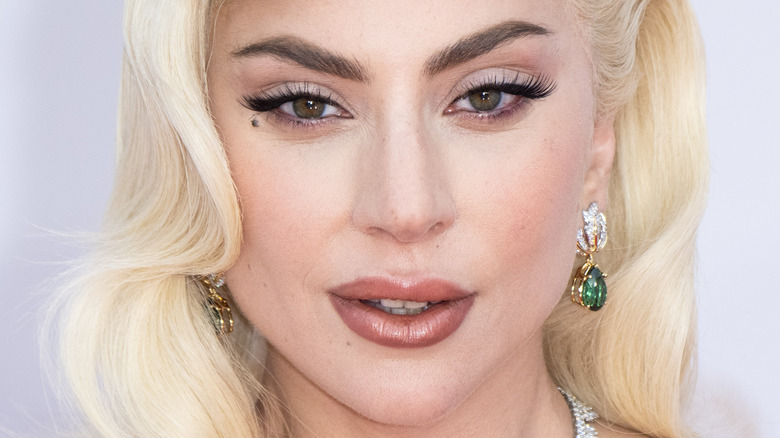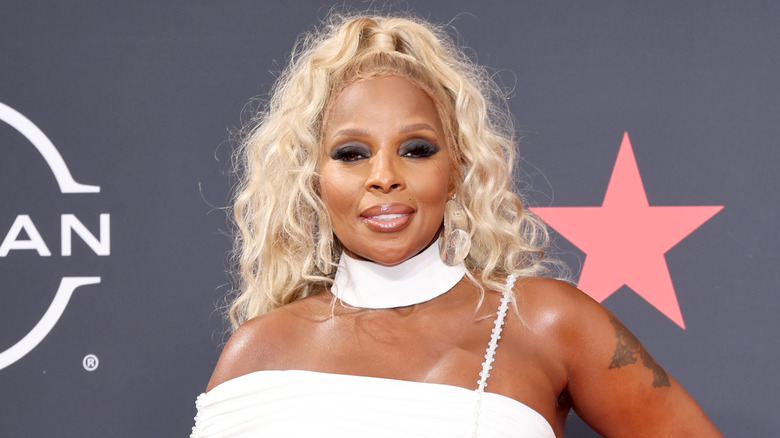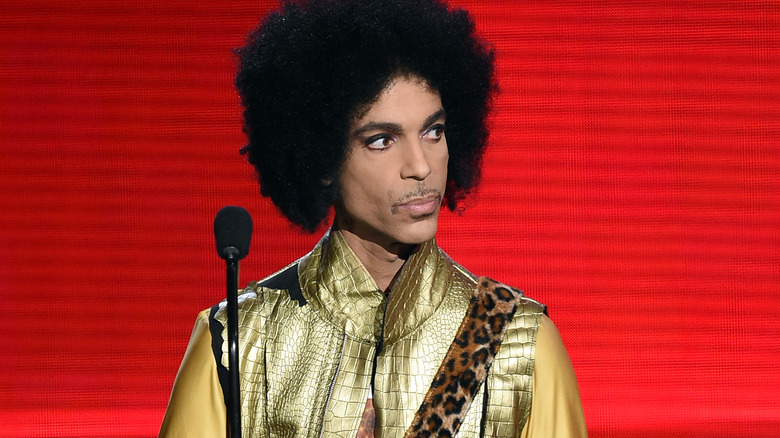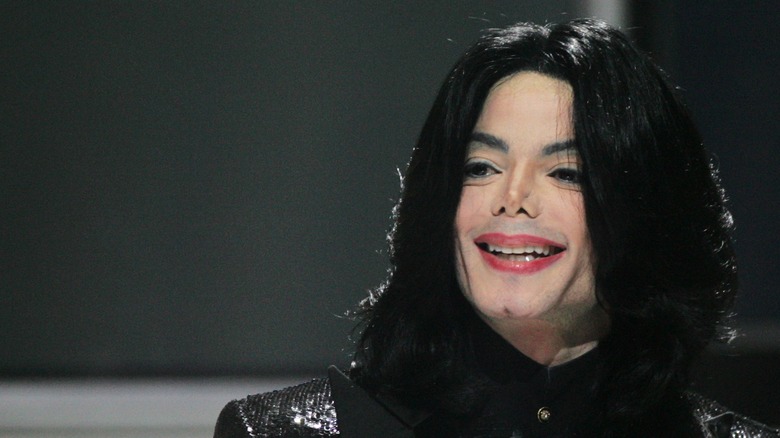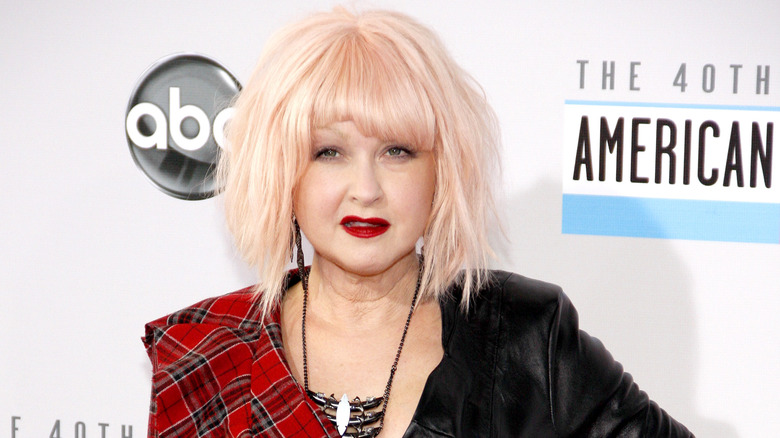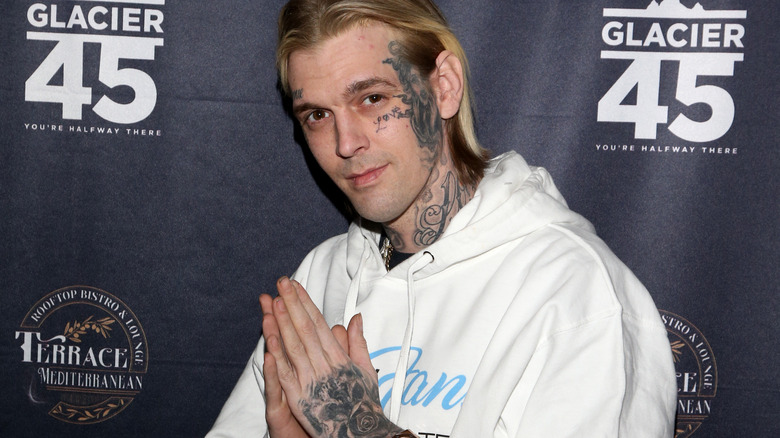Pop Singers Who Couldn't Afford Their Lavish Lifestyles
The music industry has birthed some of the most iconic artists of our time. With just one hit you can become an international star with critical acclaim. Some legacy acts like Tina Turner spent decades touring around the world and raking in millions throughout their career. In recent years, as the music industry has evolved from albums to digital streaming, it has become harder for artists to pocket the millions of dollars they were once able to. According to the New York Times, artists are struggling to receive proper payouts from platforms like Spotify for billions of streams. From 2021 onward, some of the biggest names in music even took to selling their entire music catalogs for a huge payout. As speculated by Rolling Stone, it's unsure whether this was a typical business move or if these artists desperately needed the money.
While the answers may remain unclear, artists struggling financially isn't new. For instance, "American Idol" winner Fantasia has a history of financial troubles. In an interview with Tammi Mac on RadioFree KJLH, the star opened up about the professional and fiscal struggles that many musicians face. "A lot of artists that you see, they look like they have it. And we smile and come out and put on a good show," she said. "But in real life, some of them are struggling and we don't have it. I'm just now building myself up, I lost everything twice." These are some of the artists who have suffered the same fate.
Toni Braxton filed bankruptcy twice
In 1998, Toni Braxton was forced to face the music with the IRS. The "Unbreak My Heart" singer subsequently shocked fans when she filed for bankruptcy. Despite her songs topping the charts and her tours selling out at the time, the singer claimed she was not cashing in on her success. According to Los Angeles Times, the singer generated over $188 million for her record label, but her contract with LAFace Records meant the label pocketed most of it. Her lawyers alleged that Braxton was only paid 35 cents per album sold and claimed her financial troubles were in part due to the allegedly shady contract she signed. She later settled the lawsuit in 1999.
In a 2012 interview with ABC, Braxton admitted to also spending carelessly during that time. "I love dishes and house things, so I kind of lost it a little bit on the houseware," she explained, name-dropping some luxury items. "... That's what I indulged in. I loved that part of it." In an infamous interview with Oprah Winfrey, the host called her out for splurging on Gucci flatware.
Despite those early troubles, Braxton revived her career with a sold-out Vegas residency, only to be forced into canceling in 2008 due to health issues. The singer was diagnosed with microvascular angina, which caused her to cancel the residency and once again file for bankruptcy. In 2013, she paid $150,000 to settle her case, per TMZ.
A divorce left Mary J. Blige unable to afford rent
Mary J. Blige garnered millions of fans around the world for her personal lyrics detailing the pain of heartbreak. In 2016, life imitated art when she filed for divorce from her husband of 13 years, per People. The dissolution of her marriage didn't end on good terms. In fact, her ex-husband demanded the singer pay him $129,319 a month in alimony. A year later, TMZ reported that Blige was ordered to pay him $30,000 monthly plus his attorney fees.
The messy divorce and forced payouts hit her pockets hard. Blige even alleged she was flat-out broke after the proceedings. In an interview with Angie Martinez, she explained her song "Rent Money" was about how she was struggling to pay rent. "I had to give up all this alimony, and I didn't have no more money to give because he had spent it all," she revealed on an iHeart Radio special (via Atlanta Black Star). "So, I had to go, you know, I had to go on tour and make all the money back to pay the alimony. I didn't have no money to pay my rent and all this other stuff."
While married, her estranged husband also took on the role of her manager and was alleged to have made some shady business moves. According to TMZ, Blige accused him of claiming $420,000 worth of charges as travel expenses. However, she claimed the money was actually being spent on his new girlfriend.
Gaga's big show left her in big debt
With an image as extravagant as Lady Gaga, it's no surprise that it takes millions of dollars to bring it to life. The superstar may currently be a singer, award-winning actor, and entrepreneur with her cosmetics line, Haus Labs, but in her early days of stardom, she found herself in deep debt. During "The Monster Ball Tour," which spanned from 2009 until 2011, the singer paid out of pocket for her bold vision, investing $3 million of her money on the show's global production and lavish costumes.
According to Gaga, that $3 million was all she had at the time, which worried the people around her. In the documentary, "Who the F*** is Arthur Fogel" (via Daily News) she recalled, "I remember I went home and I was with my dad and he said, 'I don't understand. 'Bad Romance' is out. You are all over the radio. Everyone is talking about you and you don't have a pot to p*** in.'"
However, Gaga was convinced her risky money moves would soon pay off. The singer planned to have her sold-out show catch the eye of Arthur Fogel, chairman of Live Nation, and hoped he would invest in her. The "Bad Romance" singer got her wish, and he eventually came along and wrote her a $40 million check. She later landed a deal with HBO which premiered the concert special, "Lady Gaga Presents the Monster Ball Tour: At Madison Square Garden." After 200 dates, the tour earned an estimated $227.4 million.
Prince's risky business moves left him with money troubles
As an artist, Prince spent his entire career advocating for the music industry to give artists fair pay and full creative control. He fought hard against labels and even went as far as to change his name to a non-phonetic symbol as a form of protest. Following Prince's shocking death in 2016, TMZ reported the singer had been living far beyond his financial means. Despite being a musical icon, his refusal to go on lengthy tours meant he missed out on earning millions.
Prince also held on tight to his extensive catalog and refused to license his iconic tracks for commercials and movies. His catalog was one of the musician's biggest lucrative assets, which only got sold after his death. Complicating matters was the fact that the singer didn't leave a will when he died, with sources claiming to TMZ that his professional life was quietly a mess.
The singer was alleged to have flaked on business deals. Having apparently experienced issues with deceitful legal matters in the past, he was also said to have frequently fired lawyers due to his paranoia of being conned and that he refused to sign legal documents. In fact, sources even claimed that his finances were left in the hands of young models with little to no experience. The lack of will and mess of money left behind would later cause a 6-year battle in court over his estate, which included his musical catalog. It was eventually valued at $156.4 million.
The King of Pop fell short to debt
The long-reigning "King of Pop" was an in-demand performer since childhood. Michael Jackson has plenty of hits to his name and he even previously held the title for the highest-selling album of all time, with "Thriller." Despite his massive tours, album sales, and extravagant Neverland estate, Jackson was shockingly financially strapped in the early 2000s. When the singer died in 2009, Billboard detailed his dwindling fortune and excessive spending habits. According to the outlet, by 2005, a forensic accountant testified that Jackson spent between $20 million to $30 million per year more than he was earning.
The singer faced mounting lawsuits by people and institutions that loaned him money and by 2008, his Neverland estate was facing foreclosure due to unpaid loans, per CNBC. In 2017, a banker testified that the singer was dealing with a financial disaster before his death. In his testimony per Daily News, David Dunn alleged the singer was $300 million in debt, which was only worsened by his excessive spending. Dunn attempted to work with Jackson to downsize his lifestyle and increase his cash flow.
"He borrowed a lot of money, he knew he had financial issues ... but the last thing he wanted to do was tour," Dunn testified. "He was looking for other things to generate income to avoid doing what he wound up agreeing to do." Before his death, Jackson announced 50 dates for the "This Is It" tour, for which he was reportedly set to earn $132 million.
Girls Just Wanna ... get out of debt
Not every artist is successful right out the gate — and 80s icon Cyndi Lauper is the perfect example. In 1978, the singer's first attempt at a music career began in a band called Blue Angel, who released their first and only album in 1980. The commercial flop made the record label pressure the group into making more hits. Blue Angel was also unhappy with their manager, Steve Massarsky, and ended up firing him. He retaliated by filing a lawsuit claiming the group owed him $80,000.
Lauper, who was nowhere close to the estimated $50 million net worth she boasted in 2023, had no choice but to file for bankruptcy. Her claim was awarded and the case was finalized in 1983. Despite the lawsuit, Massarsky was still rooting for the vocalist to achieve big things. "The last time I saw her ... I walked up to her, kissed her on the cheek, and said, 'Hey, now go make all the money we all thought you could make to begin with," Massarsky recalled to Rolling Stone. "Go become a star.'"
Lauper made all the right moves to do so. She went solo and in 1983 dropped her debut solo album, "She's So Unusual" which won her a Grammy Award for Best New Artist. Lauper went from a bankrupt budding star to an in-demand artist. Describing how the settlement between herself and Massarsky was finalized in court, the singer jubilantly recalled to Rolling Stone, "The judge said, 'Let the canary sing!'"
TLC was CrazySexyBroke
In 1995, TLC shocked the world when by filing for Chapter 11 bankruptcy. Just a year prior they had released their chart-topping album, "CrazySexyCool," which made them a household name and one of the most popular girl groups ever. At the time of their bankruptcy, the group declared they were $3.5 million in debt. They alleged that the contract with their label and management had effectively swindled them out of rightful earnings. All the money they were bringing in was taken as "repayments" for their expenses, which included hair, makeup, production, and travel costs.
"This is how a group can sell 10 million records and be broke, everyone get ready to do your math," Lisa "Left Eye" Lopez famously explained on "Behind The Music: TLC." She broke down their earnings and revealed the group only made 56 cents per album sold. After deducting taxes, studio costs, and splitting the earnings three ways, each member was only left with $300,000 after selling 10 million albums.
Despite making millions for the label, the group could barely afford homes. "I will never forget the day we were millionaires for literally five minutes," Tionne "T-Boz" Watkins told The Guardian in 2017. TLC sued their record label and management and settled a year later, per New York Times. Following their 1996 Grammy win, the group chose not to remain silent about their experiences and bravely spoke out about their financial troubles to the world
Chris Brown owes the IRS big
Chris Brown is no stranger to controversy and has faced a long list of allegations throughout his career. In 2023, he kicked off the new year with threats from the IRS and the state of California. According to Radar, the singer allegedly owes more than $4 million in back taxes. The singer had two federal tax liens filed against him for $2,245,561.50 and $1,059,967.78. The state of California also filed a state tax lien against the star for $739,067.48. That's crazy news to wake up to. Even scarier, both the IRS and the state of California reportedly threatened to seize his lavish $4.3 million dollar Tarzana mansion and side businesses if he refused to pay up in full.
In 2015, Brown's former manager, Michael Guirguis claimed the singer was on the brink of bankruptcy. In court documents obtained by Digital Music News, Guirguis claimed the singer was spending way more than he was earning. "I have worked with Brown since 2012 and have witnessed first-hand Brown's lavish spending habits," he said in the testimony. According to Guirguis, the performer routinely blew well beyond his record label's agreed budget for video shoots. This meant Brown would have to pay out of pocket for the production, which could often cost him six figures. Guiguis also accused him of spending excessively on private jets, dropping anywhere in the region of $50,000 to $200,000 per trip.
Aaron Carter's parents reportedly left him broke
While some child stars are born rich, others end up providing for their family. In the case of the latter, it can be hard for these celebrities to maintain the fortune they generated at the start of their youthful careers.
Aaron Carter hit the music scene as a child in the 2000s and had a successful music career that brought him millions of dollars. However, by the time he hit 18, his fortune was completely gone. In a 2016 episode of "Life or Debt," Carter alleged that due to excessive spending and mismanagement by his parents, his $100 million fortune disappeared before he was able to legally access it. "Before 18, the money [went] into my mom and my dad's pockets. They're supposed to be the ones that handle it correctly. But it went to cars, it went to boats, it went to a lavish lifestyle," Carter explained. "It went every which way except for in my trust fund."
Once he was old enough to access the money, the IRS said he had $4 million of unpaid taxes that his parents didn't pay while managing his finances. Carter explained that in fear of his parents going to prison, he filed for bankruptcy. At the time, he claimed that he only had $917 in his checking account, per CNN. "I was like, I can handle this. I love my mom and dad, and they are responsible for giving me my career," he told GQ three years later.

